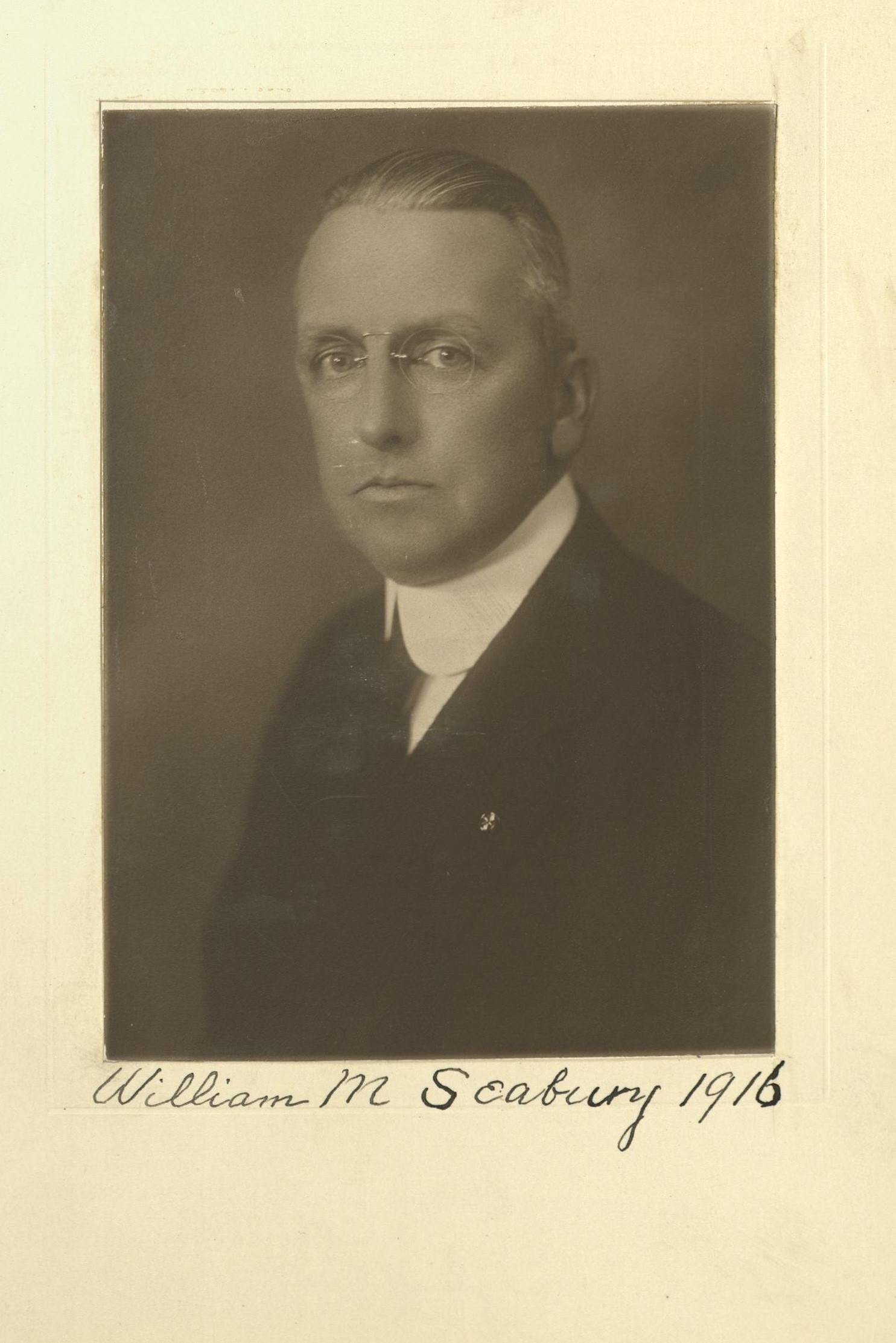Lawyer
Centurion, 1916–1949
Born 18 March 1878 in New York (Manhattan), New York
Died 8 November 1949 in New York (Manhattan), New York
Buried Trinity Church Cemetery and Mausoleum , Manhattan, New York
, Manhattan, New York
Proposed by William M. Grosvenor and Henry W. Jessup
Elected 6 May 1916 at age thirty-eight
Archivist’s Note: Brother of Samuel Seabury
Century Memorial
William Marston Seabury. [Born] 1878. Lawyer.
In the Century the Secretary has many duties and pleasures not mentioned in the By-Laws and Mr. Seabury initiated me into one of them when he came to my office, five years ago, and gave me a handful of what the Churches call folding money to pay the dues of a friend who could not afford to pay. The only stipulation was that come Hell or high water, come the rack, torture and pain I was not to reveal who had paid; that if he were accused I was to lie with a poker face, which indeed I had to do.
Bluff, gruff Will Seabury would not have wanted me to tell the story even now, but both the parties are now gone; and the Secretary’s limitations on writing these Memorials are only such limitations as his conscience imposes.
As a lawyer, Seabury devoted much of his practice to international law, international finance, and to the international, public welfare and economic aspects of the motion picture industry. As author of authoritative books in these fields he received the Palmes Académiques and the Legion of Honor from the Government of France, and was named an officer of the French Academy.
As a Centurion, his home was the card room and he played every day. Playing-cards, not merely the games played with cards, but the cards themselves his deep, extra-occupational, interest. He made an exhaustive study of cards, their number in a pack at different periods, the number of picture cards and their types, and particularly their symbolism. He would have been, it seems to me, a bad man in a navy poker game with the one-eyed face-cards wild!
But bridge, not poker, was his game and he was a devoted student of bridge. He made as much of a study of that game as he did of the cards themselves. He had a large collection of hands which he had analysed, and he published a number of comments on the bidding and play of hands.
He was stricken, as you probably know, in the card room and I have seen a letter by one who saw his going. It ends: “Will was a very fastidious person and I want to say to you simply and accurately that in the way he left us he did not let himself down.”
Source: Henry Allen Moe Papers, Mss.B.M722. Reproduced by permission of American Philosophical Society Library & Museum, Philadelphia
Henry Allen Moe
Henry Allen Moe Papers, 1949 Memorials

